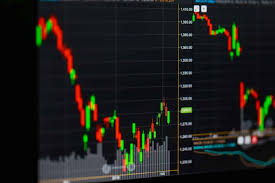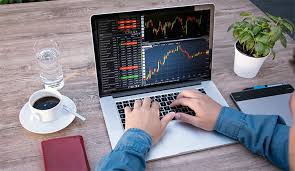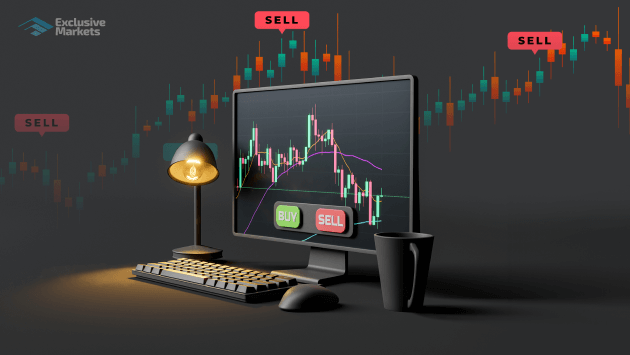- by 横川光恵
- 2025年11月3日
Understanding Forex Currency Trading Brokers A Comprehensive Guide 1621394266

Understanding Forex Currency Trading Brokers: A Comprehensive Guide
In the fast-paced world of Forex currency trading, the choice of broker can be a decisive factor in the success of a trader. Whether you are a novice just starting your journey or an experienced trader seeking to optimize your trading experience, understanding the role of a Forex broker is essential. This guide presents an in-depth exploration of what Forex trading brokers do, how to select the right one, and the platforms they offer. For further insights, you can also visit forex currency trading broker protradinguae.com. Let’s dive into the essential aspects of Forex trading brokers.
What is a Forex Broker?
A Forex broker is a financial services company that facilitates the buying and selling of currencies in the foreign exchange market. They act as intermediaries, providing traders with access to a platform where they can execute trades with different currency pairs. Most brokers make a profit through spreads – the difference between the buying and selling price of a currency. Some also charge commissions on trades.
Types of Forex Brokers
Forex brokers can be categorized into several types, mainly:
- Market Makers: These brokers set their own prices and take the opposite side of their clients’ trades. They can offer fixed spreads and execute orders instantly, providing a seamless trading experience.
- ECN Brokers: Electronic Communication Network (ECN) brokers provide a platform that connects traders directly to the market. This means they offer variable spreads and usually charge a commission. They are known for higher liquidity and faster order execution.
- STP Brokers: Straight Through Processing (STP) brokers transfer orders directly to liquidity providers without dealing with them. This leads to faster processing times and reduced latency.
How to Choose a Forex Broker
Not all Forex brokers are created equal, which is why it’s crucial to do your research before committing to one. Here are some key factors to consider:

Regulation and Licensing
Ensure that the broker is regulated by a reputable authority, such as the Financial Conduct Authority (FCA) in the UK or the Commodity Futures Trading Commission (CFTC) in the USA. Regulation provides a level of security and trust that traders should look for.
Trading Platforms
The trading platform is the software provided by the broker to execute trades. Look for a platform that is user-friendly, offers various analytical tools, and is compatible with your trading style. Popular platforms include MetaTrader 4 (MT4) and MetaTrader 5 (MT5).
Account Types
Different brokers offer various account types catering to different trading styles and experience levels. These may include demo accounts for practicing, standard accounts for regular trading, and premium accounts for high-volume traders. Choose a broker that offers suitable options for your trading needs.
Spreads and Fees
Compare the spreads and fees charged by different brokers. While some may offer low spreads, they may charge higher commissions or have hidden fees. Look for a broker that provides transparent and competitive pricing.
Understanding Leverage and Margin

Leverage allows traders to control larger positions with a smaller amount of capital, enhancing potential profits (and losses). Forex brokers typically offer varying levels of leverage. However, higher leverage comes with increased risk, so it is essential to understand how margin works and to employ sound risk management strategies.
Customer Support and Education
Reliable customer support is vital, especially for new traders who may need assistance navigating the trading platform or troubleshooting issues. Additionally, many brokers offer educational resources, including webinars, tutorials, and e-books, to help traders improve their skills and knowledge.
Executing Trades: A Step-by-Step Process
Once you have chosen a Forex broker, it’s time to start trading. Here’s a step-by-step guide on how to execute a trade:
- Open an Account: Register with your selected broker and provide the necessary documentation.
- Deposit Funds: Fund your trading account using the available methods, such as bank transfer, credit card, or electronic wallets.
- Choose a Currency Pair: Select the currency pair you wish to trade based on your analysis.
- Analyze the Market: Use various trading tools and indicators to conduct a technical or fundamental analysis of your chosen pair.
- Place Your Trade: Decide whether you want to go long (buy) or short (sell) and hit the ‘execute’ button.
- Monitor Your Trade: Keep an eye on your positions and make necessary adjustments or close the trade based on market movements.
Popular Trading Strategies
Traders employ various strategies to maximize their profitability in Forex trading. Some popular methods include:
- Day Trading: Involves executing multiple trades within a single day, aiming to benefit from short-term price movements.
- Swing Trading: Traders hold positions for several days or weeks, capitalizing on medium-term price swings.
- Scalping: A high-frequency trading method where traders make small profits on numerous trades throughout the day.
- Position Trading: Long-term trading strategy where positions are held for weeks, months, or even years based on overall market trends.
Conclusion
Selecting the right Forex currency trading broker is a critical step that can significantly impact your trading success. By understanding the types of brokers, evaluating their features, and employing prudent trading strategies, you can enhance your trading experience. Whether you are just starting or looking to refine your skills, continuous learning and adaptation are key to thriving in the Forex market. Remember to choose a regulated broker, harness the power of technology through robust trading platforms, and always prioritize risk management in trading decisions.